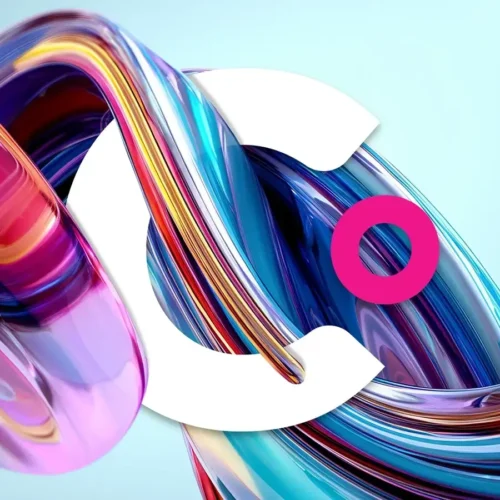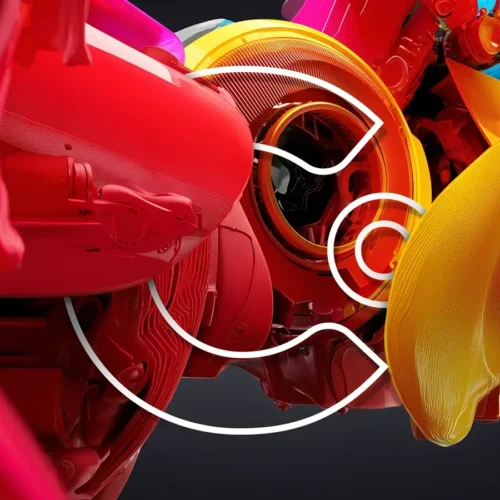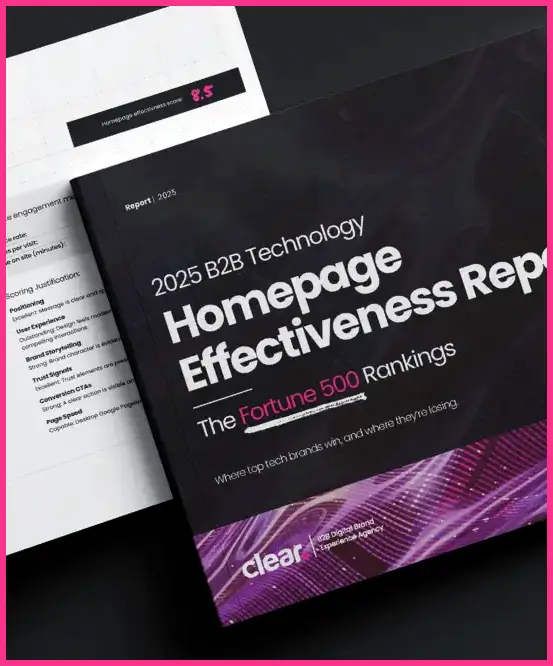Settling on the right digital agency for your B2B tech company can be a long, difficult process. You have to evaluate whether their portfolio work meshes with the needs of your business, and then there’s ensuring you have a match in terms of timeline, workflow style, and budget.
However, once you’ve settled on a collaborator, the work can finally start – for both sides of the engagement. Unfortunately, for as much expertise and effort that an outside agency provides, they do not bear sole responsibility for delivering a successful project for your business.
In order to ensure your firm receives the strongest return on its investment, you have to be a strong and supportive partner to your agency’s efforts as well. Obviously, the right digital design partner will successfully communicate whatever details and deliverables they need to finish a project to your specifications.
But by following five key principles of effective agency collaboration and communication, you’ll ensure your firm is encouraging its web design agency to perform at the highest level.
Step 1: Clarify Your Business Goals and Establish Project Objectives
Whether you’re teaming up with a web design agency to deliver a specific project or provide long-term support, communication is critical.
From the beginning, you need to inform your design partner of each detail in the parameters of your project to form a foundation for its approach. When B2B firms go into agency engagements with only general or vague ideas about what they want, issues often result.
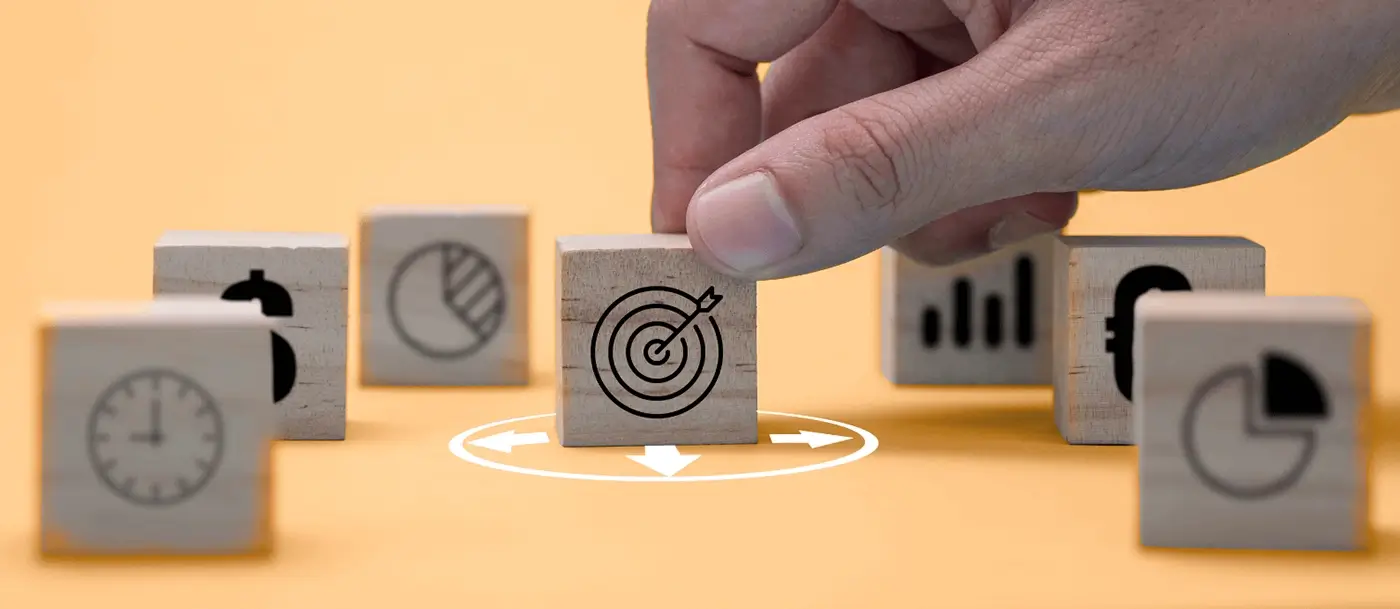
Your agency needs to learn all it can about your organization and its needs – both in terms of business goals and institutional background. You can make their job easier by being honest about where your business has been and where you’d like to go.
Step 2: Establish Specific KPIs and Share Known Issues
Wherever possible, you and your stakeholders need to be very straightforward about the results you’re looking for from the project. If a specific KPI is your most important measure of success, then your agency needs to know about it.
To work with you effectively, your agency needs to know as much information about your firm as possible. Maybe you’ve worked with other agencies in the past and had a negative experience, or your team is hampered by technical or organizational difficulties. All of these details create a story for your agency that helps them create the work you need.
In order to ensure your firm receives the strongest return on its investment, you have to be a strong and supportive partner to your agency’s efforts as well.
Step 3: Ensure All Stakeholders Are Engaged and Empowered to Ask Questions
Your relationship with a web design agency is ultimately a partnership. But in order for that collaboration to progress seamlessly, you both have to lean on one another for clear and timely information to determine next steps.
Whether you’re meeting with your agency for a workshop or project update, you have to ensure all of your stakeholders are prepared to honestly contribute. Sometimes, especially in virtual engagements, some members of your team will nod their heads and allow the conversation to keep moving, even if they’re uncertain what was just said. It’s critical that every stakeholder takes the time to pause, ask questions, and stay engaged to minimize confusion later in the process.
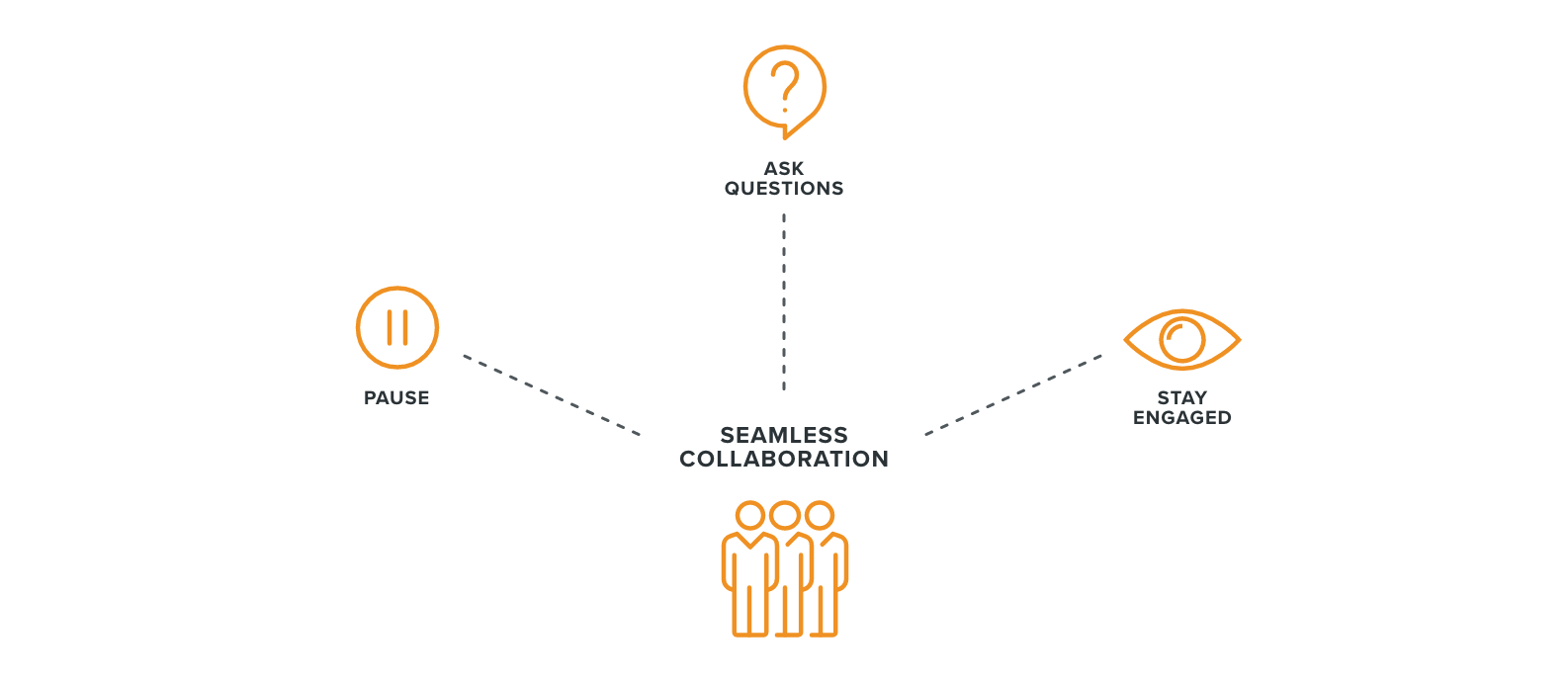
This is especially important if multiple stakeholders are in a meeting and one person contributes more often than the others. For a successful collaboration with a digital agency every voice needs to be heard. The best partner for your firm will take the same inquisitive approach with members of their own team. Otherwise, the questions only grow more uncomfortable later in the process. If everyone isn’t on the same page throughout the process, then you’ll encounter delays as a project progresses and doesn’t meet everyone’s expectations.
So ask every question. It’s why your agency is there.
Step 4: Do Your Homework
At the beginning of any engagement, your agency will outline the details of its process and what it will mean for your team. When your agency sets expectations about the work it needs from you or an upcoming meeting agenda, you need to ensure all your stakeholders arrive prepared.
If that kind of homework isn’t completed in advance, your agency will have to fill a lot of gaps around potentially critical details as they work to meet deadlines. Then, when it comes time to deliver their work, your agency will miss the mark because they didn’t have all the information they needed.
Every detail, no matter how unimportant it may seem, is important for your agency to create its best work.

Step 5: Ask for Advice and Listen to Suggestions
One of the key benefits of building a pattern of asking your agency questions is it opens a clear line of communication. Once this practice has been established, you can extend its reach to areas where your digital design experts can offer feedback to your organization.
For example, if the number of form completions on your website is underperforming, you can ask your web agency for advice. Sometimes, it can be difficult for your internal teams to decide on the right approach to solving a design problem. Your agency can provide a nudge to step in and say, “If this is what you’re trying to achieve, this is what we recommend.”
When asking for advice around a specific problem, it’s ultimately up to you what you do with your agency’s ideas. However, if your digital design partner is offering your firm suggestions within the scope of your engagement and you’re not following them, then you have to recognize these choices may impact the goals you set at the beginning of the project.
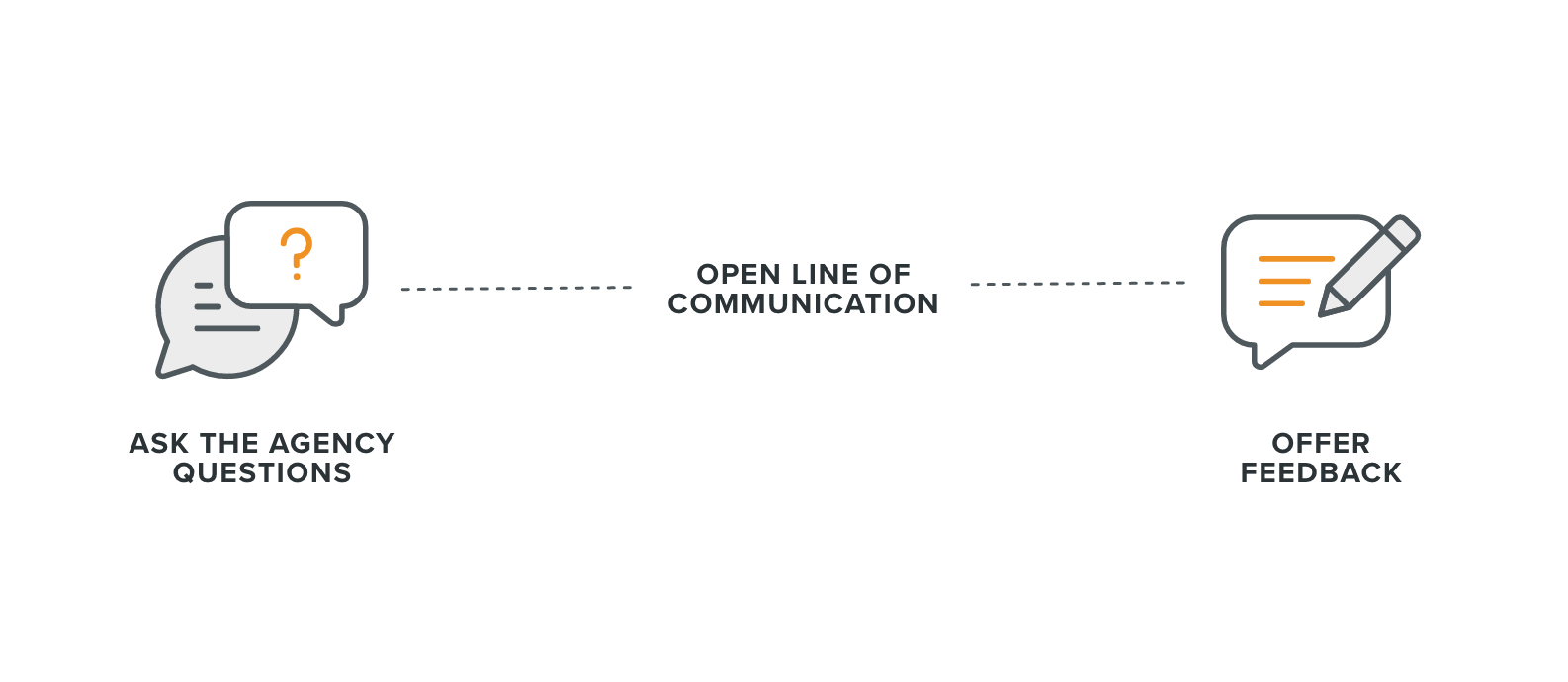
When you seek out assistance from a web design agency, you’re really seeking out their expertise. If you really favor a bright shade of yellow to anchor your firm’s web design, it’s your agency’s job to call out what could be a personal preference that will impact the well-being of your business.
How to Build Trust and Nurture Long-Term Collaborative Partnerships
Once you’ve built a level of trust with your agency, they may offer additional advice to your organization as well. As the relationship progresses, your agency may make suggestions during its quarterly check-ins for other potential projects that will extend the reach of your digital business.
The decision to proceed and expand the engagement’s scope is yours. But ultimately, if you’ve established clear communication patterns and remained an active partner with your agency, the most important work is already in progress.


